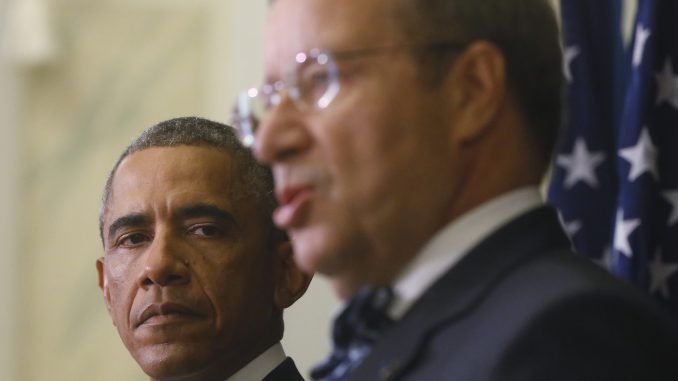
Political observer Kęstutis Girnius tells DELFI he gets the impression that voters in the United States do not find developments in Russia’s policies a matter of great urgency.
At a press conference with Estonian President Toomas Hendrik Ilves, Obama restated support for NATO allies, promised greater US air force presence in Estonia, but noted that some NATO members were quite timid about their obligations to spend two percent of the GDP on defence. Obama also said he wanted to see “a strong, productive and cooperative” Russia.
Girnius says that the US president thus sticks to his usual moderate line – there is little probability of Obama surprising the world with strong statements on Russia or far-reaching promises to allies that might irritate Moscow.
Nothing new
Obama promised that Estonia – and, by extension, the Baltics – will not be left alone. However, Girnius notes, the US president put great emphasis on defence funding – area where Lithuania falls behind its obligations to NATO.
“I did not expect to hear anything new, nor did I. Even though when he [Obama] said that obligations [to NATO allies] were firm and eternal – these were strong words. I think an important point was made when he said clearly that he expected all NATO members to carry out their obligations. Therefore the decision to go to Tallinn, and not Vilnius or Riga, is not random,” according to Girnius, referring to the fact that Estonia is one of very few NATO members that spend two percent of their GDP on defence.
Estonia was thus singled out among the Baltic nations, he says.
Vagueness about Ukraine
Estonian reporters showered Obama with questions about support – including military – to Ukraine. Girnius feels that the president was evasive and reluctant to give concrete answers.
“The president spoke rather vaguely and stressed the importance of political and economic support,” Girnius tells DELFI.
He singles out one more point made by Obama, which shows, according to Girnius, his reluctance to irritate Moscow.
“In the long term, what they’d like to see is a ‘strong, productive and cooperative’ Russia. In other words, Russia is not an enemy per se. Even though it misbehaved these last few years, should Moscow decide to change its course, the [US-Russian] relations could be renewed. At least that’s how I understood it,” Girnius comments.
He notes that Obama needs Russia’s backing in solving many international policy issues, so one could hardly expect the US leader to say anything else.
Girnius adds that there is little chance of unexpected statements or promises to the Baltic nations on the eve of the NATO Summit. “Even if they had made important decisions, they would certainly not announce them today.”
Americans care little about Ukraine
During the press conference in Tallinn, Obama took questions from four reporters, two from Estonia and two from the US. Girnius notes that the american reporters were interested primarily in the threat posed by the Islamic State in the Middle East and the American hostage killed by terrorist. This shows that the American public thinks there are more pressing issues than the crisis in Ukraine.
“The American reporters were less interested about Ukraine and more about the Islamic State and the killed journalist. I think, this points to the priorities of the American people. The Islamic State is thought to be a more dangerous phenomenon than Russia’s actions in Ukraine,” Grinius says.
He summarizes Obama’s statements in Tallinn in one sentence: “A very firm commitment to the Baltic States, moderate support for Ukraine and reluctance to shut doors for Russia.”

Be the first to comment